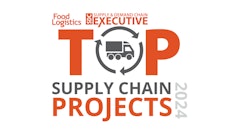Moscow — October 4, 2007 — When thinking about Russia and its economy in the late 1980s and approaching the pivotal events of 1991, the mental images many outsiders have usually consist of long bread lines, dour faces, plain clothing, empty shelves and lack of direction. To the outside observer, Russia was a country mired in political and economic upheaval. Not any more.
Since those heady days almost 20 years ago, the Russian market landscape has changed. Fueled by higher capital expenditures, a large budget surplus brought on by higher energy prices, increasing wages and discretionary spending by a growing segment of the population, Russia has become and is expected to remain a significant market for a wide range of consumer and infrastructure building products for the foreseeable future. Recent surveys of corporate executives of major Western companies in Russia reveal that revenues and profits for foreign operators are on the rise, in many cases exceeding expectations, and the ROI for companies willing to invest in this once "off limits" market is well worth the effort.
Russia — An Historical Perspective
When viewing the events that have shaped today's Russian economy, key facts about the events following the 1917 Revolution provide a good perspective. Within three years of the Revolution, the Russian economy was in shambles after a Civil War and the application to economy of a political ideology incompatible with the natural instincts of a predominantly agrarian populace.
In 1921, to jump start the failing economy, Lenin introduced the New Economic Plan (NEP). Over 350 "concessions" were awarded, which once again permitted private ownership in some parts of the economy including agriculture. In the non-agricultural sector, the expertise of the much maligned Western financial and industrial institutions was enlisted to rebuild the State's industrial infrastructure. Such pragmatic actions were readily recognized to be incompatible with the stated ideology of the vociferously "anti-capitalist" State.
By 1929, Stalin abandoned NEP in favor of the forced collectivization of agriculture and the State tried to renegotiate the terms and conditions of Western "concessions." Rather than agreeing to changing conditions and obvious higher operating costs, many Western firms abandoned their support of Russian economic development.
The Yeltsin years (1991-1999) began with the promise of transforming Russia into a free market economy through "privatization" — another effort led by Western technocrats and economists imported by the government. By the mid-1990s and leading up to the 1996 Presidential election, a "loans for shares" program and the granting of export licenses by the State were the vehicles that enabled the largest transfer of national wealth and industrial capacity of the 20th century. The repository of this wealth was a new class of private entrepreneurs, now referred to as the "oligarchs."
Throughout the 1990s and continuing to this day, Western technology, expertise and finance have been invited to participate in the rebuilding and ownership of these newly "privatized" entities, particularly in the lucrative oil and energy sector. Joint venture (J/V) and energy production sharing agreements (PSAs) were negotiated, offering the prospect of sizeable profits for Western partners. Similar to the concessions situation in 1929, significant Western producers operating under such agreements have come under pressure, and in some cases have been forced to accept new operating terms and conditions.
2000 and Beyond — Doing Business in Russia Today
With the change of administration in 2000, businesses are noticing a reverse trend. An aggressive program of wealth confiscation and concentration back into the hands of the State is in progress. This is especially apparent in the energy producing sector — one of 36 sectors declared by the government by summer 2007 to be "strategic" and subject to tighter State control. As a business newly entering the Russian market, political savvy and relationships are important.
In 2007, official government policy is to diversify the national economy by focusing on domestic production and the manufacturing of value-added goods as opposed to the wholesale export of natural resources and raw materials. These objectives are supported by an aggressive program of asset acquisition by the government or government-friendly entities, the creation of government-supported research facilities, asset reacquisition and implementation of a new policy mandating State control of the "strategic industries." Industries that fall into this category include mineral extraction, energy, timber, high-technology and aviation — all industries developed and supported by Western conglomerates.
Trade with Russia — Working with the Federal Customs Service
In Russia, the Federal Customs Service serves as a primary source of federal revenue. With collection authority, the Federal Customs Service is mandated to contribute approximately 40 percent of the revenues needed to fund the federal budget. By exercising this authority, Federal Customs has become a political powerhouse whose actions indirectly control the global supply chain operations of all importers and exporters. The less-than-smooth functioning of customs operations is perhaps the most frequently mentioned problem voiced by suppliers trying to get goods to market in Russia.
In working with the Federal Customs Service, one should bear in mind that although the economic landscape of Russia has changed since Soviet days the legacy of a Soviet "top-down"-style system remains. There is nothing more conservative and stable than a bureaucracy, and in this regard Russian Customs is definitely no exception. All activities are mandated by senior leaders who discourage independent, forward-thinking, solution-oriented actions by the individual. Accordingly, no process is decided and no decision implemented without approbation from "the top." This power and authority are closely guarded and protected by an entrenched bureaucracy, one which the federal administration, with more or less success, has periodically attempted to restructure.
It is also important to understand that when seeking problem resolution in Russia and with Customs, one's perceived legal standing is often less important than the level of one's personal relationships or the ambitions of the person in charge. There are many dedicated Customs officials who would prefer to have operations be transparent to importers and exporters. However, their everyday activities are hindered by a rigid system that is difficult to understand and even more difficult to change.
Customs Code
For market participants, compliance with the Customs Code of the Russian Federation is easier said than done. Nevertheless, one should attempt by all means possible to be in compliance with the law beginning with providing proper and easily transparent transactional documentation.
Compliance is complicated by the fact that the Customs Code and procedures are at times vague and subject to interpretation. The Code, it is claimed, is often not universally applied within the Russian Federation, not readily available and subject to change without what we would deem proper notice. The confusion is exacerbated when product licensing is an issue. In such cases, the process can easily become a labyrinth involving multiple approving bodies. There are few if any economic incentives to provide a licensing determination quickly.
The departure of many senior customs officials in recent years has left the service with fewer individuals with the knowledge and willingness necessary to take Customs to the next higher level of efficiency needed to accommodate the international trade community. Russian Customs is the most frequently mentioned "broken link" in the Supply Chain mentioned by importers and exporters alike.
Modernization Efforts
Viewing Russia as a country with vast market potential, the World Bank contributed more than $140 million to support modernization of the Federal Customs Services in anticipation of Russia's accession into the World Customs Organization. The goal was to develop and implement an integrated IT system for Customs Control & Clearance, thereby enabling Russia to handle trade documentation volume on par with European Union countries.
To date, the project has produced little in the way of measurable results as evidenced by the fact that fewer than 10,000 of over one million recent entries were processed "electronically" — 1 percent. It is a widely held belief that this failure is the result of a lack of safeguards on many levels, including but not limited to lack of financial oversight and accountability.
Best Practices
There are a few best practices that importers and exporters should follow to mitigate the effects of a system incapable of providing dependable, functional procedures and standards of behavior. Businesses should:
- Be transparent about their trade activities. In other words, don't give Customs a reason to detain goods and products.
- Partner with a local vendor with interests in growing globally. A partner open to succeeding on a global scale will be more flexible in "getting things done."
- Research the current and former business activities of all partners. Problems can arise when partnering with agents or brokers whose activities have caught the eye of Federal Customs or of the Federal Tax Service.
- Secure guidance from a multinational law firm with local connections. This firm should provide a legal framework for your business activities that conforms to actual practice.
- Hire a reputable accountancy firm whose practices conform to best practice standards both in Russia and the firm's foreign legal jurisdiction.
- Be selective in hiring practices and consider the advantages of having a Western professional at the top of your management team in Russia.
- Become educated about the Russian culture and mindset. There is a particular psychology drawn from the cultural history which, if understood and acted upon, will help achieve your long term commercial objectives. Participate in the activities of Western-managed trade development organizations in Russia such as the American Chamber of Commerce (Russia). Through forums and commercial services activities, these organizations provide arenas for discussion and a "united front" for addressing specific industry sector concerns with Customs and other federal authorities.
- Educate executive teams about the challenges of doing business with Russia. The more senior management understands the environment, the more willing they will be to look for solutions instead of "steamrolling" over suppliers.


























